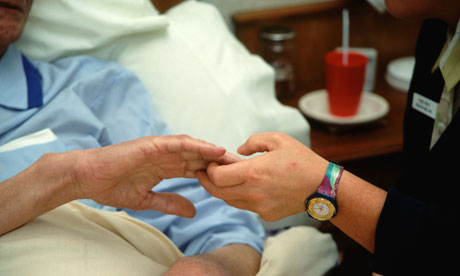A controversial end-of-life protocol is to be abolished in Britain following an independent review that found numerous cases of abuse and suffering among dying patients.
The report on the Liverpool Care Pathway echoed concerns raised by Catholic physicians and by Bishop Philip Egan of Portsmouth, who said doctors were being asked “to make a definitive judgment that a patient is about to die and that feeding and hydration can be summarily withdrawn”.
The LCP is also used in New Zealand hospitals with Ministry of Health funding.
“This is not civilised. It is a national disgrace,” said the Minister for Care and Support, Norman Lamb, after learning of “too many examples of poor practice and poor quality care, with families and carers not being properly involved and supported”.
He said the LCP would be phased out and replaced by individual care plans for the dying.
The report — titled More Care, Less Pathway — said the protocol’s “tick-box” approach to end-of-life care allowed medical professionals to base clinical judgments not on patient needs but on whether criteria set out by the framework had been met.
“It would seem that when the LCP is operated by well-trained, well-resourced and sensitive clinical teams, it works well,” the report said.
However, reports of “uncaring, rushed, and ignorant” treatment abounded and “many families suspected that deaths had been hastened by the premature, or over-prescription of strong pain-killing drugs or sedatives and reported that these had sometimes been administered without discussion or consultation”.
“There was a feeling that the drugs were being used as a ‘chemical cosh’ which diminished the patient’s desire or ability to accept food or drink.”
The report emphasised that medical professionals would be guilty of professional misconduct if they refused a patient food and fluid, and demanded better policing and funding of end-of-life care.
Numerous examples were cited of patients dying of thirst. The review team also heard stories of nurses shouting at families who intervened to give their relatives a drink.
Some patients took up to 16 days to die after they were wrongly diagnosed as dying and placed on the pathway.
Sources:
Image: The Guardian
Additional readingNews category: World.




